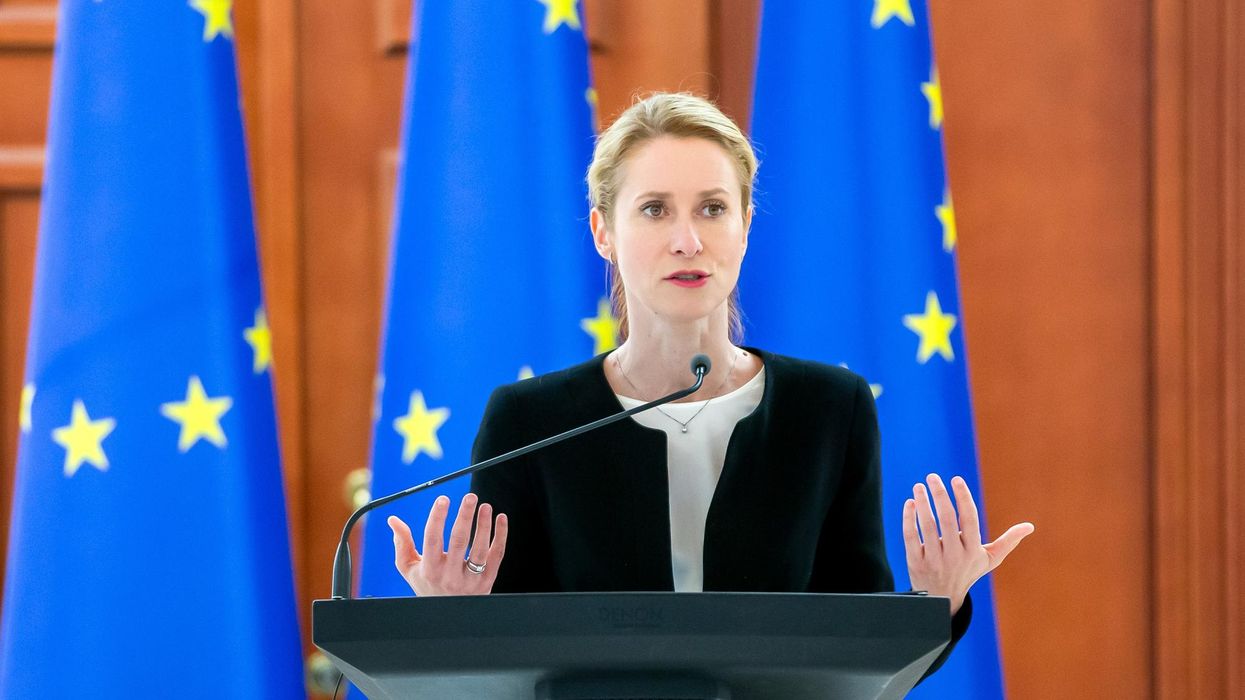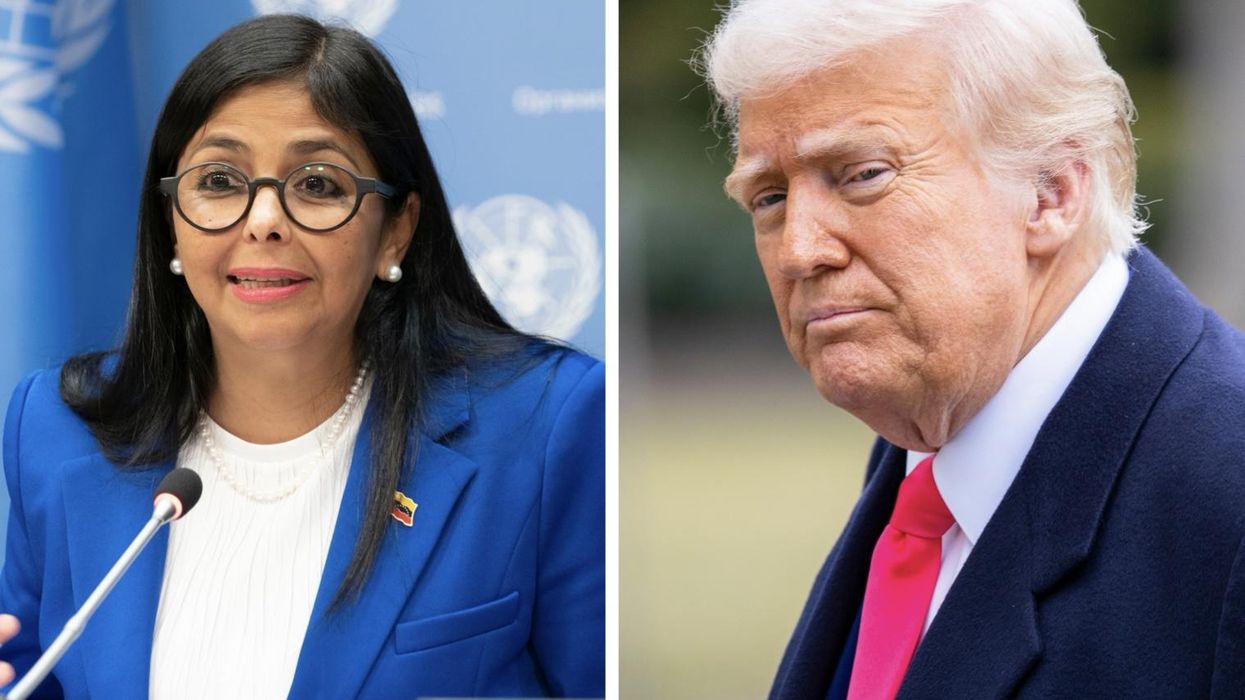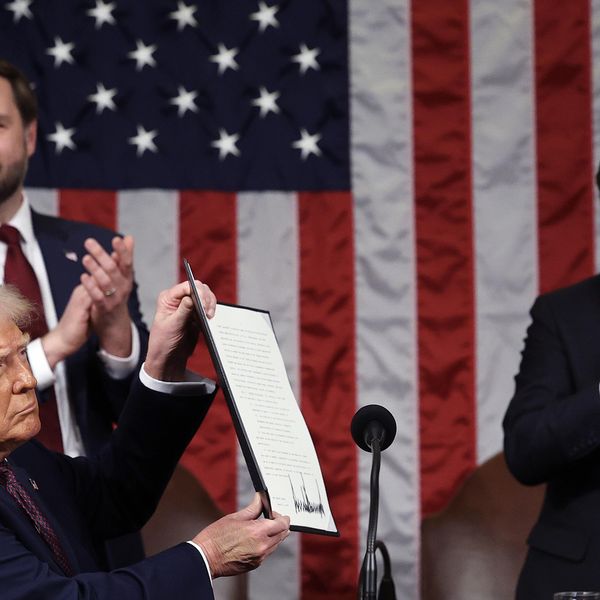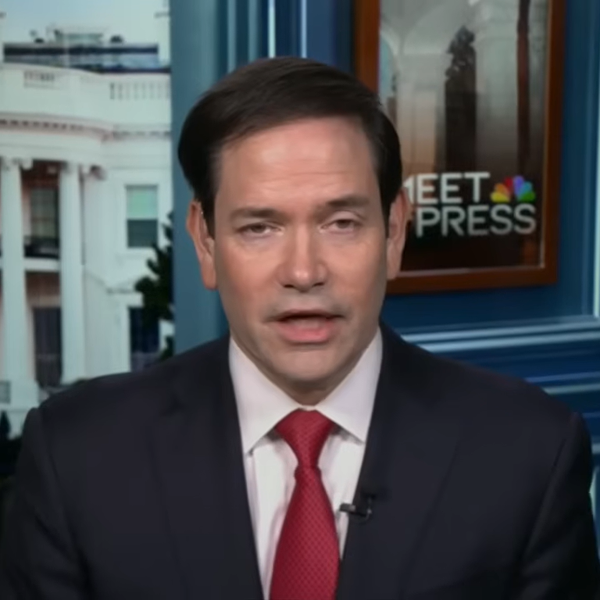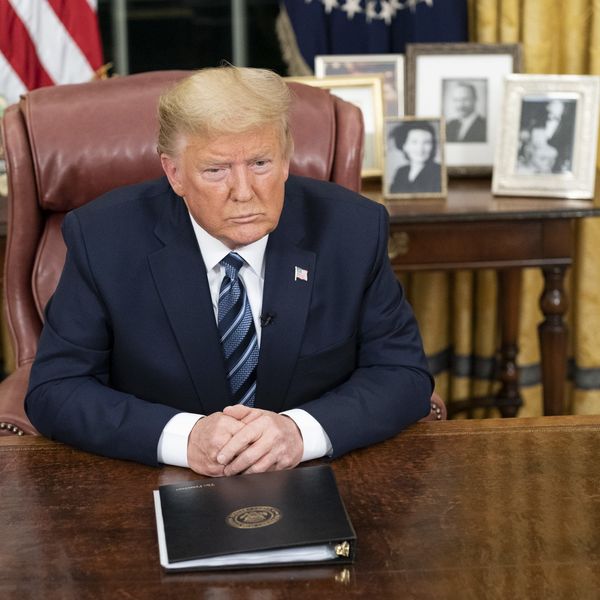UPDATE, 1/16: Trump won the Iowa caucuses early-on Monday night, with 51% of the vote totals, followed by Ron DeSantis at 21%, Nikki Haley at 19%, and Vivek Ramaswamy, who later suspended his campaign, at 8%. In exit polling, 12% voters said that foreign policy was their most important issue going into the caucuses, behind the economy (38%) and immigration (34%).
On the eve of the Iowa Caucus, a Donald Trump caucus captain said that Nikki Haley was a “warmonger” and a shill for the Deep State, and that Ron DeSantis was pretty much the same.
Welcome to the beginning of the 2024 Republican primary contests where foreign policy is very much a part of the conversation.
While Trump is still far ahead of his primary competitors, the battle for a distant second is in play. A Des Moines Register/NBC News poll last week showed Trump with 48 percent in Iowa, Haley at 20 percent and DeSantis at 16 percent. Vivek Ramaswamy trails in fourth with 8 percent. The Iowa caucuses begin tonight at 8 p.m. EST.
Just as noteworthy, an Associated Press poll released in early January revealed that, “Foreign policy has gained importance among respondents from both parties. Some 46% of Republicans named it, up from 23% last year. And 34% of Democrats list foreign policy as a focal point, compared with 16% a year ago.”
“It also shows that the Israeli-Hamas war is feeding public anxiety,” AP noted, reporting that double the amount of Americans are bringing up foreign policy now as compared to last year’s polling on the same subject. The data also showed concerns about U.S. involvement with the Ukraine conflict were about where they were a year ago.
But via their positions on both the Israel-Gaza and Russia-Ukraine conflicts, this is a diverse GOP presidential field when it comes to foreign policy.
Donald Trump
The current Republican frontrunner boasted in the spring that he would settle the Ukraine-Russia war in 24 hours. “The key is the war has to stop now because Ukraine is being obliterated,” Trump said in March.
Meanwhile, he has issued intermittent and mixed messages on Israel-Gaza, though often seems to imply it was a problem of those entities and not necessarily the U.S.
“So you have a war that’s going on, and you’re probably going to have to let this play out,” Trump told Univision in November. “You’re probably going to have to let it play out because a lot of people are dying.”
Trump appeared to acknowledge that as far as grievances, there were two sides regarding Palestine and the Jewish state. “There is no hatred like the Palestinian hatred of Israel and Jewish people. And probably the other way around also, I don’t know,” the former president said. “You know, it’s not as obvious, but probably that’s it too. So sometimes you have to let things play out and you have to see where it ends.”
Trump has called what was taking place in Gaza “unbelievable.”
Nikki Haley
If Trump’s inclination on both Ukraine and Gaza is somewhere between diplomacy and letting things play out, there are not two sides in these conflicts for Nikki Haley. For the former United Nations ambassador, there is the impenetrable righteousness of Ukraine and Israel, and the undebatable evil of Russia and Palestine.
And she wants the U.S. fully backing the good guys of both. If you liked George W. Bush kicking off the Global War on Terror by declaring, “either you are with us, or you are with the terrorists,” then Haley is your candidate.
For Republicans, particularly in leadership and the donor class, for whom Bush-Cheney still represents the fundamental approach to Republican foreign policy — trying desperately to ignore that attitudes in the Trump-era base have changed — Haley is unquestionably their candidate.
Not surprisingly, neoconservative lodestar Bill Kristol is a big Haley fan, and on the flipside, antiwar Republican Sen. Rand Paul recently launched a ‘Never Nikki’ campaign.
Ron DeSantis
But if some Trump supporters revel in calling Haley a “warmonger,” Ron DeSantis, who began his campaign promoting himself as a more responsible or viable version of Trump, now often gets lumped in with Haley.
After calling Ukraine-Russia a “territorial dispute” in March 2023, the Florida governor seemed quick to walk back his remark, calling Russian head Vladimir Putin a “war criminal.”
In contrast, Trump has been urged to call Putin a war criminal but has refused to do so, while also admitting Russia “made a mistake” in invading Ukraine. "If you say he's a war criminal it's going to be a lot tougher to make a deal to get this thing stopped," Trump said in May.
Haley has said she thinks President Biden isn’t being aggressive enough with Russia.
DeSantis has said it is far more important to support Israel than Ukraine, and that he would not try to stop Israel’s war in Gaza, going so far as to say in the last Republican debate that he would support “mass removal” of the Palestinians.
Vivek Ramaswamy
The clearest ‘“America First” foreign policy message in 2024 to date on these two conflicts has not come from Trump, but entrepreneur Vivek Ramaswamy, who doesn’t want the U.S. involved in the Russia-Ukraine war and says a negotiated peace with Ukraine giving up some territory is the only solution.
“I don’t think it is preferable for Russia to be able to invade a sovereign country that is its neighbor, but I think the job of the U.S. president is to look after American interests,” Ramaswamy said in June.
Haley has said Putin is “salivating” over a Ramswamy presidency — a neocon tactic used in the past on anti-war Republican candidates like Ron Paul, who was constantly accused of siding with America’s enemies.
Ramaswamy has said Israel had the right to defend itself after the October 7 terrorist attacks, but opposes U.S. intervention and aid, but also says that aid should be contingent on what actions Israel’s government takes in Gaza.
“Israel is barreling toward a potentially catastrophic ground invasion of Gaza without clear objectives,” Ramaswamy said in late October. “‘Destroy Hamas’ is not on its own a viable or coherent strategy.”
The fight for the foreign policy mantle
Two decades after the Global War on Terror, some candidates still run to carry on the legacy of George W. Bush, but others — even frontrunners — appear to reject that kind of foreign policy.
The same goes for some Republican voters, though they appear split on the Ukraine and Israel issues. While a growing number oppose more aid to Ukraine for example, a plurality say the U.S. is not doing enough to support Israel in its war on Gaza and are more likely than Democrats to support Israel’s bombardment and siege of the Palestinian territory.
There is some hope, with restrainers on the conservative side quite vocally questioning not only the strategic thinking behind Biden’s recent strikes against the Houthis, but their constitutionality.
What does a Republican foreign policy look like in 2024? We won’t know for some time, but it’s arguably more of a question than an answer right now than at any time in modern party history.


